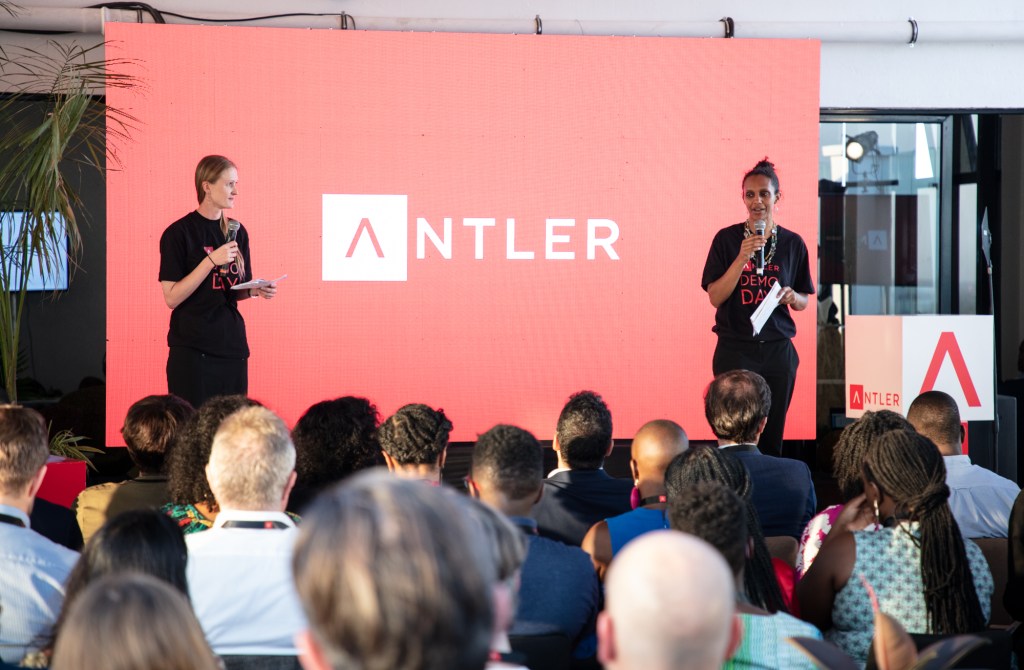Unlike incubators and accelerators, company builders are organizations that tend to develop startups from scratch mainly based on their own ideas and resources. In the process, they bring together tech enthusiasts — designers, developers, marketers — who likely meet each other for the first time to work on a startup.
Antler is one such organization. But it runs a mixed model where it also acts as an early-stage venture capital firm. It helps founders build complementary co-founding teams, and provides support with deep business model validation and a global platform for scaling their businesses. To date, Antler has invested in and helped build more than 250 companies. Of these companies, 40% have at least one female co-founder, and the founders represent more than 70 nationalities.
Founded in 2017 by serial entrepreneur Magnus Grimeland and a team of experienced entrepreneurs, investors and company builders worldwide, Antler has raised more than $75 million to help entrepreneurs spread across nine of the world’s major entrepreneurial hubs. They include Amsterdam, Berlin, London, Nairobi, New York, Oslo, Singapore, Stockholm and Sydney.
Antler’s only office in Africa is in Nairobi, and it is run and led by women.
Marie Nielsen, founder of a paper recycling company in Ethiopia called Penda Paper Recycling, is a partner at the firm. She was an associate partner at Mckinsey & Company responsible for opening their Addis Ababa office. Melalite Ayenew is the firm’s tech partner. Her experience includes Oracle, Bain & Company and Princeton Consultants. Selam Kebede is the firm’s director and leads operations. Before joining Antler, she worked for a couple of VCs and entrepreneurship support organizations.
Turning professionals to founders
Similar to other locations around the world, Antler East Africa runs two cohorts in a year. The firm is particular about adopting a people-first approach, and they bring together professionals with, on average, 10 years of experience in their respective industries. These professionals who become founders ideate, iterate and create solutions typically based on insights they have gathered or problems observed during the course of their past professional experience in their respective industries. After six months of incubation, the firm invests in the teams they can help further. Typically in the pre-seed stage, Antler cuts $100,000 checks for a 10-20% equity in each selected team. But for Antler East Africa, the stake is exactly 20%.
“Our process is very hands-on; by working with the co-founders over several months, we get the opportunity to help shape the business models and perform extensive due diligence before investing,” Nielsen said to TechCrunch.
The due diligence Nielsen talks about is supported by the global Antler platform, where they pull upon its network of more than 400 experts across technologies and industries. After the pre-seed investments, Antler East Africa claims to continue to support the teams as they hit the ground running and start raising funds from follow-on investors.
Ayenew adds that the firm is also exploring the opportunity to invest in pre-existing, early-stage startups developed outside its program, but early enough for them to come in and still provide value in addition to the monetary investment.
Company-builder Antler passes $75M raised after investment from Schroders and Ferd
Given that Nairobi is Antler’s only office in Africa, the team looks out for founders working on pan-African problems and solutions. It has attracted founders from more than 15 African countries, which plays a large role in maintaining its cohorts’ outlook to be organically pan-African.
To date, Antler East Africa has invested in a broad range of technology companies in the B2B, B2C and direct-to-consumer space, ranging from emerging sectors like robotics and AI to sectors such as health tech, fintech and proptech. From its last two cohorts, Antler East Africa has invested in six startups.
Cooked is a subscription-based meal kit provider. Cooked operates with weekly and monthly subscriptions and delivers products to its customers on pre-agreed days of the week. The founders have more than 20 years of experience in finance, food and restaurant industries.
UNCOVER claims to be building the continent’s most trusted skincare brand and content platform by partnering with top skincare labs in Korea. The company carried out a skincare survey with responses from 1,000 Kenyan women and claims the data obtained will help develop viral knowledge platforms and effective customized products.
Having spent its early days in FMCG, and particularly with small traders, ChapChapGo identified that the lack of simple and affordable tools tailored to the local context was a major challenge for Kenyan businesses to adopt e-commerce. ChapChapGo enables businesses to transact online in a few minutes with simple invoicing, automatic reconciliation and faster M-PESA checkouts.

Anyi Health wants to improve access to financial support for primary healthcare seekers. In Nigeria and many other African countries, patients unable to pay their hospital bills are detained in the hospital or left untreated. Anyi Health aims to solve this through a mobile-based point-of-need credit facility, where patients can apply for credit directly at the hospital. The company just started its MVP pilot with three hospitals in Lagos, Nigeria and is looking to raise a $300,000 seed round based on pilot proof of concept.
AIfluence is an AI-driven influencer marketing platform. Founded by advertising veterans, AIfluence enables brands in Africa to make a better decision when launching, managing and evaluating their influencer marketing campaigns. The company has signed customer contracts worth more than $600,000 with leading international and African companies, including Sony and Safaricom.
Digiduka positions itself as the digital service solution for Kenya’s cash economy. Its thesis is that payment solutions in Africa have two problems shutting out millions of potential users. One is high transaction fees, ranging as high as 9% per transaction, and the other is inconvenient payment modes. With the CEO and CTO having between themselves over 15 years of experience working with leading African telcos and as a technical lead for various startups, they aim to build the unified digital services solution of choice for both consumers and smaller retailers in Kenya.
Antler East Africa’s next cohort is in April, and Kebede says by bringing brilliant and experienced people together to create outstanding businesses in Africa, they hope that Antler “will help foster organizations that change the way people think, are sustainable and innovative as well as encourage other people to realize their own business goals.”































Comment